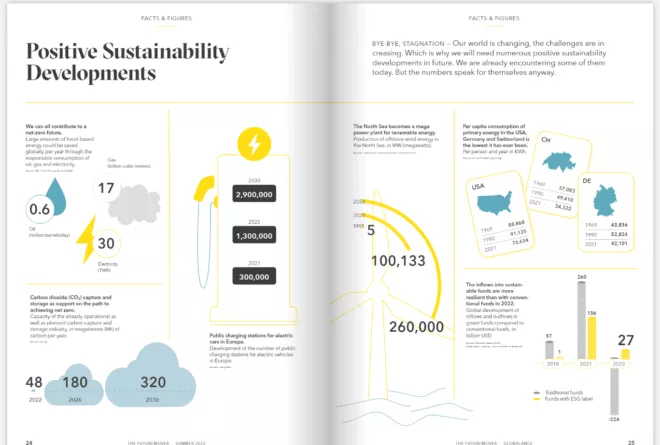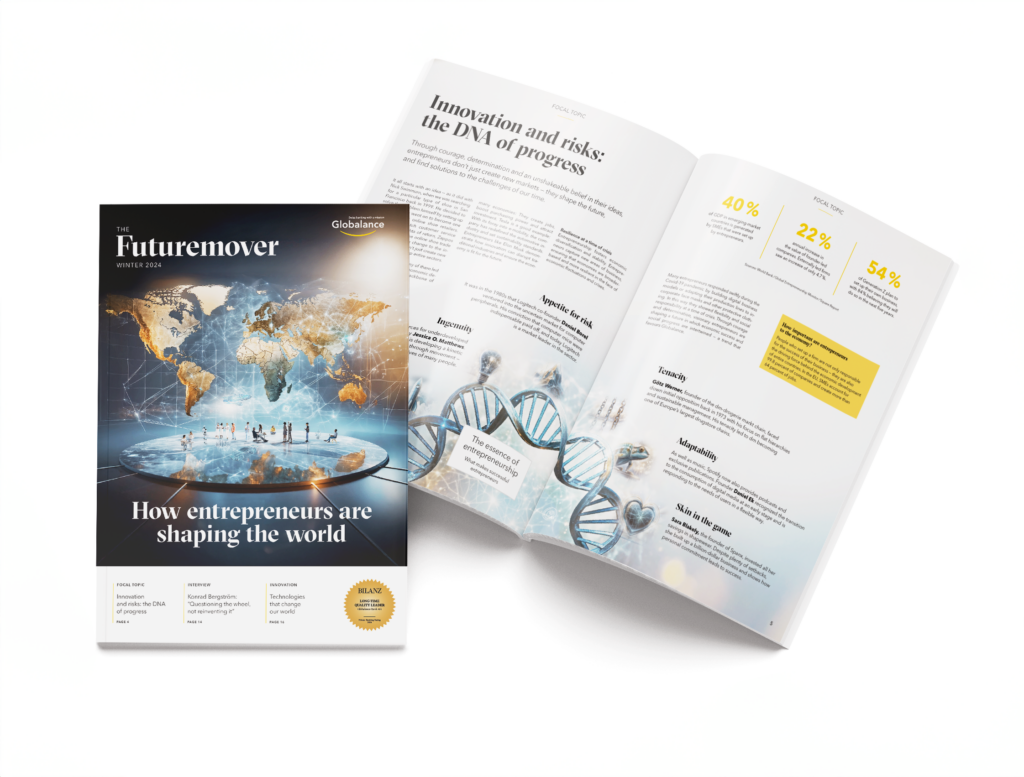News & Trends
On the election of the new US President

The upcoming return of Donald Trump to the White House is moving the markets. During times of such significant change, it’s important to take a broader view and think longer term. Susanne Kundert, Head of Investments, examines various aspects of Trump’s second presidency in our interview.

Susanne Kundert, Head of Investments at Globalance, in a short interview on the outcome of the US election.
Ms Kundert, what consequences will the upcoming second Trump presidency have for trade relations between the US and Europe?
Trade relations are likely to come under considerable pressure. President Trump has already announced that he will step up his “America First” policy and impose import tariffs of up to 60 per cent on European goods. This would particularly affect export-oriented industries such as the automotive industry, mechanical engineering and the luxury goods industry. European companies will have to refocus their supply chains and possibly increase production in the US. At the same time, the EU could respond with additional counter-tariffs, which would further exacerbate trade tensions.
How might Trump’s tax policies affect the financial markets?
According to his campaign statements, further tax cuts will have a positive impact on the corporate profits of US companies and increase disposable income, which should boost the stock markets. Small and medium-sized enterprises in particular would reap above-average benefits. The downside is the rising budget deficit, which is already at historic highs. This could lead to higher long-term interest rates and rising inflation in the medium term. Expansionary fiscal policy is far riskier in the current high-interest-rate period than it was during Trump’s first term.
What role does Trump’s election play in the US dollar, and how might this affect European investors?
In the short term, I expect the dollar to strengthen, as investors will speculate on tax cuts and deregulation. In the medium term, the risks will grow: rising public debt, possible political influence on the central bank and increasing geopolitical tensions could put pressure on the dollar. We recommend balanced currency diversification and increased hedging of currency risks.
Sectors and future topics
How will the economic conditions change for future technologies such as renewable energy and clean tech?
The implications are complex as while Trump will try to continue to promote fossil fuels and deregulate climate protection, even he cannot override the economic benefits of renewables being driven by the market. The fact that US states such as New York and California are resolutely pursuing their own climate protection programmes is also often overlooked. Added to this, there are import duties on Chinese products that strengthen the competitiveness of US solar companies. Therefore, investors are increasingly backing companies that can operate profitably without subsidies.
What are the economic and political risks for technology areas such as artificial intelligence (AI) and cyber security in the US?
Technological competition with China is likely to intensify under Trump. This might lead to increased investments in AI and cyber security. Further deregulation may accelerate innovation, but it also carries risks in terms of data protection and ethical standards.
What are the main long-term trends in digitisation and infrastructure that you expect under Trump?
He has announced massive investments in infrastructure, which will focus primarily on traditional areas such as roads, bridges and the energy infrastructure. At the same time, digitisation will continue to advance, even if the focus may be more on national digital sovereignty. Investors should consider both aspects:
- Traditional infrastructure companies with strong US presence
- Digital infrastructure vendors (data centres, 5G, cyber security)
- Companies at the interface of the physical and digital infrastructure
Climate policy and energy transition
What impact will a second term for Donald Trump have on global climate and energy policy?
It will complicate global climate action efforts. Expect to see:
- Paris Climate Agreement: passivity or exit
- Increased support for fossil fuels
- Relaxation of environmental requirements
- Reduction of investments in climate protection
Nevertheless, the global transformation of decarbonisation is unstoppable. Its drivers are:
- European and Asian climate action efforts and innovations
- Technological advances in renewable energy
- Pressure from investors and consumers
- Economic benefits of clean technologies
Increased uncertainties caused by geopolitical tensions and changes in international relations are of an overarching nature and call for additional attention with the basic classification of investor risks.
Investment outlook
What immediate consequences do you envisage for market development?
The general picture of the fundamental developments remains unchanged: robust economic data for the US economy, falling inflation and interest rate cuts by the central bank result in a positive capital market environment.
The prospect of tax cuts and deregulation measures will initially have a positive impact on American companies’ profit forecasts. Small and medium-sized enterprises, which are firstly more closely related to the US market than many large companies, and secondly have cheaper stock valuations, are likely to benefit in particular. The Globalance Zukunftbeweger equity fund focuses on these companies.
What does this mean for the Globalance portfolio?
We pursue a balanced global strategy:
- Quality stocks with a strong market position
With a 70% allocation in US stocks within our equity portfolio, we are well positioned to benefit from the effect of the tax cuts and deregulation. - Futuremover equities
Small and medium-sized enterprises, the majority in the US, will benefit from the “America First” strategy. - Future topics
The balanced distribution between our nine future topics and selective allocation in the renewable energy segment (with a focus on network infrastructure manufacturers) ensures that possible negative effects in the energy sector are offset by positive momentum in the technology sector. Our focus is clearly on technology leaders in critical infrastructure and digitisation winners. - Global bonds from companies and states with a high credit rating, whereby we prefer green bonds from companies to US government bonds — also in view of the rising US government debt.
- Gold as a strategic component to hedge against geopolitical uncertainties.
- Low-correlated investments such as insurance linked securities, premium strategies or microfinance investments are less sensitive to interest rate changes and provide stability in the portfolio, even if longerterm interest rates should rise.
- Finally, infrastructure investments are also part of our portfolio
Always up to date
Subscribe to our newsletter and the Futuremover magazine to stay informed and be regularly inspired by the latest trends in business, society and the environment.
Magazin abonnieren EN
"*" indicates required fields



